Ojas, Prana and the psyche
Dr. P. Ram Manohar
In the chapter dealing with alcoholism (madātyaya), the Carakasamhita points out the relationship between Ojas and Manas. Alcohol or Madya affects Ojas with exactly opposite qualities. When the Ojas is affected, Satva or Manas which is dependent on Ojas gets disturbed. A major function of Ojas is to invigorate and stabilise the mind.
Elsewhere, the decline in Ojas has been linked with major mental disturbances. Emotional instabilities like fear, worry, lack of enthusiasm have all been associated with debilitation of Ojas. Manas and Ojas influence each other profoundly. Just like disturbances in Ojas can affect the mind, disturbances in the mind can also affect the Ojas. Anger, anxiety and sorrow can deplete Ojas instantaneously.
Prāṇa is the link between Ojas and Manas. In other words, we can say that Manas, Prāṇa and Ojas represent one single continuum connecting the Mind, Nervous System and the Immune System of the body. In medical science, this is nowadays recognised as PNI or Psycho-Neuro-Immunological Axis.
PNI researchers have revealed how emotions and thoughts impact our brain, hormones, and nervous system and also our immune system’s ability to protect us. It can also work the other way – changes in the immune and endocrine systems create changes in our nervous system which lead to changes in our emotions also.
Here is what new research on PsychoNeuroImmunology has revealed.
“People who were abused or neglected as children can have permanent changes in their brain chemistry and immune response as a result. Trauma survivors, like military veterans, natural disaster and assault victims, and those who work in first responder roles, have higher than expected incidences of both infectious illnesses (because their immune response to viruses is reduced) and cancer.
Even loneliness can be the cause of immune system suppression that can lead to illness. PNI also studies how positive emotions can bolster both immune and endocrine system responses. The interactions work in the other direction as well, with many disease sufferers prone to developing clinical depression in response to lowered hormone levels and chronic inflammation. Studies of cancer victims and other disease-sufferers who receive psychotherapy and group support show that these interventions in emotional health can have an impact on physical health.”
The link between stressful emotions and our immune system has also been well studied.
“Stressful emotions also reduce the numbers and effectiveness of immune system cells, including the inflammation response which is part of our non-specific protection, the t cells that directly attack invaders and the Natural Killer (NK) t-cells that rid us of cancers, the macrophages that also attack directly, and the cells and processes, including cytokines, that fuel chronic inflammation – a risk factor for cardiovascular disease and cancer”.
The new findings in modern medical science seems to echo the observations in classical Ayurvedic texts about emotions and immune system.
ojaḥ kṣīyeta kopakṣuddhyānaśokaśramādibhiḥ – Ojas will decline by anger, hunger, thinking too much, sorrow, exertion and such other activities. When Ojas declines, immunity is compromised.
A person whose Ojas is affected has been graphically described thus –
bibheti durbalo/bhīkṣṇam dhyayate vyathitendriyaḥ, duśchāyo durmanā rūkṣo bhavet kṣāmaśca tatkṣaye – When there is a decline in Ojas, one loses strength and immunity, one begins to worry too much, the senses are under stress, the natural complexion is afflicted and the mind takes on a negative disposition and the person becomes dry and debilitated.
While the superficial correlations are striking, we cannot straight away equate Manas, Prāṇa and Ojas with the Mind, Nervous System and the Immune System. The observations in the classical Ayurvedic texts and the findings in modern medical science converge in the understanding of the deep interconnection between the mind and the body.
The Carakasamhita itself has pointed out that the mind can exert a powerful healing effect on the body. When the mind is influenced favourably, there is satisfaction, enhancement of energy and immunity. There is significant reduction in overal physical and mental strength leading to the reduction in the severity of the disease.
manaso/rthānukūlyāddhi tuṣṭirūrjābalodayaḥ, sukhopabhogatā ca syād vyādheścāto balakṣayaḥ.
We will explore how the pyschosomatic pathways of the human body have been depticted and mapped in the concept of Manas, Prāṇa and Ojas in the human body.
Ojas itself is said to be the Tejas of the Dhātus. Which means it is the refined essence of the physical food that we eat – ojastu tejo dhātūnām.
At the physical level Ojas is said to be responsible for the ability of the organism to act – tannibaddham hi ceṣṭitaṃ. Thus, we can understand that Ojas is linked to Prāṇa because Prāṇa is the impulse that enables us to act. Prāṇa is the master controller of all the sensory and motor activities of the body. And Prāṇa is also that which links the physical body with the mind.
It woud be an interesting exercise to explore how the connections between Manas, Prāṇa and Ojas have been elaborated in the classical Ayurvedic texts and how these are applied in clinical situations to kindle the healing mechanisms in the human body in a holistic manner.
Newsletter
* Ich habe die Datenschutzerklärung zur Kenntnis genommen. Ich stimme zu, dass meine Angaben und Daten zur Beantwortung meiner Anfrage elektronisch erhoben und gespeichert werden.

2024 © Rosenberg Ayurveda Akademie gGmbH